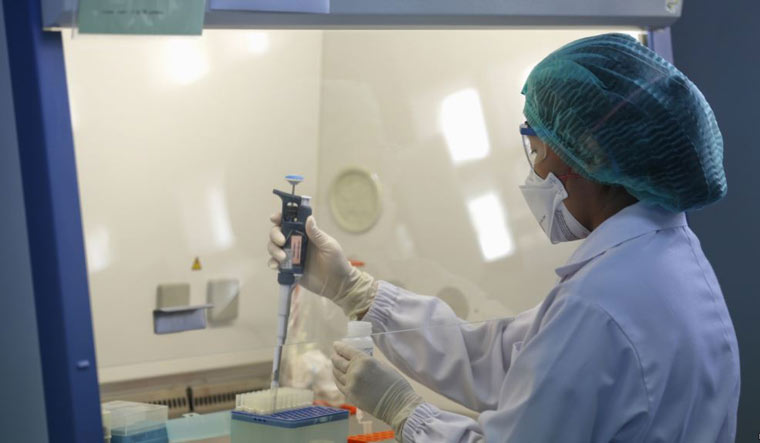A new clinical trial in the UK holds hope for those suffering from Crohn's disease—a painful long-term condition caused by inflammation of the lining of the digestive system. Those suffering from the disease have diarrhoea, abdominal pain, extreme tiredness, among other symptoms. As of now, there's no cure for the disease.
The disease affects 115,000 people in the UK, where the trial is going to take place. In India, the disease has been considered a rarity. It is also often confused with gastrointestinal tuberculosis in the country, because of similar clinical features that make it hard to differentiate between the two.
According to the World Journal of Gastroenterology, the highest number of people with Crohn's disease in India are reportedly from Kerala.
In the UK trial, ASTIClite (Autologous Stem cell Transplantation In refractory Crohn’s disease – Low Intensity Therapy Evaluation), researchers will be using stem cell transplants to grow new immune systems for people with untreatable Crohn’s disease. The study, coordinated through the Clinical Trials Unit at the University of Sheffield, is led by Queen Mary University of London and Barts Health NHS trust.
The trial entails that patients undergo chemotherapy and hormone treatment to mobilise their stem cells, which are then harvested from their blood. Further chemotherapy is then used to wipe out their faulty immune system. When the stem cells are re-introduced back into the body, they develop into new immune cells which give the patient a fresh immune system. The new immune system will then no longer react adversely to the patient’s own gut to cause inflammation, and it will also not act on drug compounds to remove them from their gut before they have had a chance to work.
Current treatments for the disease include drugs to reduce inflammation, but these have varying results, and surgery is often needed to remove the affected part of the bowel. In extreme cases, after multiple operations patients may require a final operation to divert the bowel to an opening in the stomach, called a stoma, according to a media release on the UK trial.
Lizzie Swaby, Study Manager for the ASTIClite trial from the School of Health and Related Research (ScHARR) at the University of Sheffield, says that investigators in the trial hope that by completely resetting the patient’s immune system through a stem cell transplant, “it might be possible to radically alter the course of the disease”. “Stem cell transplant alone may not provide a cure, but it may allow some patients to start responding to drugs which had not worked previously,” she said.
Swaby says that though there are multiple treatment options available for patients with Crohn’s Disease, in many cases these do not work, with patients either not responding, or suffering unpleasant side effects. “Surgery can be an option, allowing patients to return to their normal daily activities. But this is not always suitable, and some patients may not wish to consider surgery.”
Professor Tom Walley, Director of the NIHR Evaluation, Trials and Studies programmes, said: “Stem cell therapies are an important, active and growing area of research with great potential. There are early findings showing a role for stem cells in replacing damaged tissue. In Crohn’s disease this approach could offer real benefits for the clinical care and long term health of patients.”


